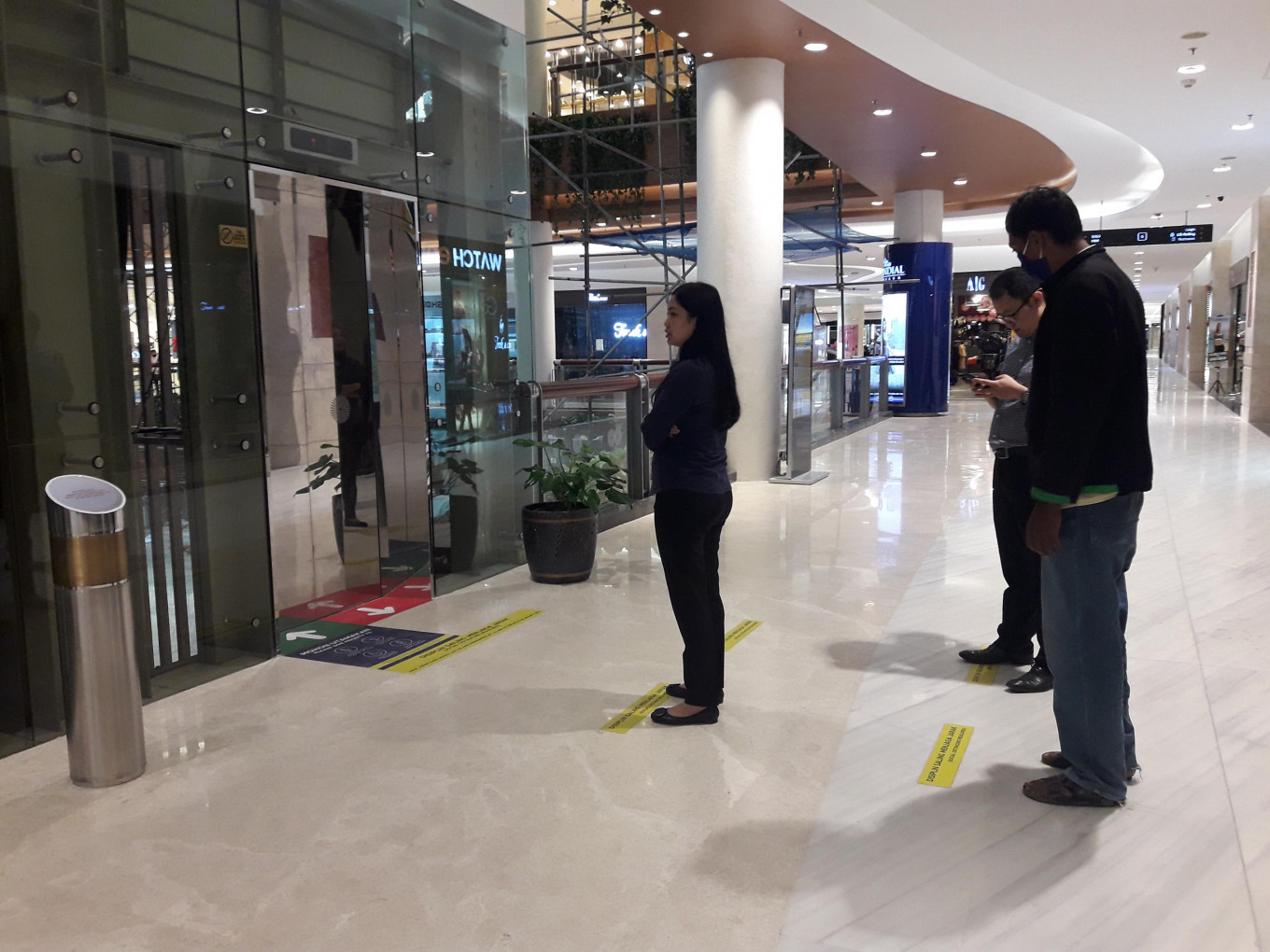Popular Reads
Top Results
Can't find what you're looking for?
View all search resultsPopular Reads
Top Results
Can't find what you're looking for?
View all search resultsBusiness hit by COVID-19, Jakartans hope social restrictions can curb transmission
Economic activities in Jakarta account for about 70 percent of the nation’s total.
Change text size
Gift Premium Articles
to Anyone
A
s Jakarta prepares to enforce large-scale social restrictions (PSBB), residents hope that the policy will curb the growing number of COVID-19 cases in the capital.
Jakarta has been the country’s COVID-19 epicenter since cases were first discovered in early March. The city has 1,369 cases, approximately half of the national total.
Jakarta Governor Anies Baswedan has announced that large-scale social restrictions will take effect on Friday. The administration will close most schools and will limit group religious and social activities, in-office work and public transportation.
While many residents have been staying at home since the government advised social distancing in March, some hope the new, more comprehensive policy will finally curb COVID-19 transmission in the capital.
Devita Anggraeni, a 30-year-old insurance salesperson, said that she had been working from home since the outbreak and would continue to do so during the large-scale social restriction period.
While working from home had affected her productivity and social life, she hoped that Jakarta residents would comply with the policy.
“If we look at other countries that have taken [similar] action, such as Vietnam and Saudi Arabia, which are really strict with their social distancing policies, it seems to be effective,” she told The Jakarta Post on Wednesday.
“Large-scale social distancing may be the right thing to do for a certain period of time, until the situation is fully resolved or under control. Residents should heed the regulation as well,” she added.
Read also: Satellite cities to follow Jakarta’s lead on large-scale social restrictions
Bondan, a 23-year-old stockbroker, has not been able to work from home. He has been required to go to the office during the pandemic.
Anies said that certain business sectors would be allowed to operate on-site during the social restriction period: health care, food, energy, finance, banking, communication, logistics and retail, among others.
Bondan said that it would be difficult for stockbrokers to work from home, as it could cause miscommunications that could lead to duplicated orders or mispricing.
“I’m personally not afraid [for my own health], but I’m scared that I might be a carrier of the virus,” he told the Post on Wednesday.
Although Bondan said he thought the latest restrictions had come a bit too late, he hoped they would work well and would curb transmission, especially as Jakartans seemed to be emerging from their homes again, evinced by the return of traffic jams in some areas.
Business players are hopeful about the restrictions but do not want them to last long.
“The large-scale social restrictions are a decision made by the government, so businesses will comply. We hope that they won’t last long and will curb transmission so that business activities can return to normal,” said the Indonesia Chamber of Commerce and Industry (Kadin) vice chairman for logistics and supply chains, Rico Rustombi.
He said that economic activities in Jakarta accounted for about 70 percent of the national total, adding that the policy would cause that activity to “die down for a while” and that formal and informal industries would be equally affected.
Shopping centers have been hit hard by COVID-19. Several malls in Jakarta, including Kota Kasablanka in South Jakarta and Plaza Indonesia in Central Jakarta, have closed most of their shops due to a significantly lower number of visitors.
“They only open essential areas of the mall, such as supermarkets, banks, ATMs and restaurants for takeaway,” Indonesian Shopping Center Association (APPBI) chairman A. Stefanus Ridwan said, adding that shopping centers had sustained “huge amounts of losses” as a result of the outbreak.
He said the association had asked for assistance from the government, including tax relaxations and loan repayment postponements from banks but that the government had not yet responded.
Rico added that the interrupted cash flow of companies caused by the social restriction policy might also cause them to lay off their employees after Ramadan.
“Medium and small companies face tough times due to the COVID-19 pandemic. Plus, they have an obligation to give [employees] the [Idul Fitri] holiday bonus,” he said.










